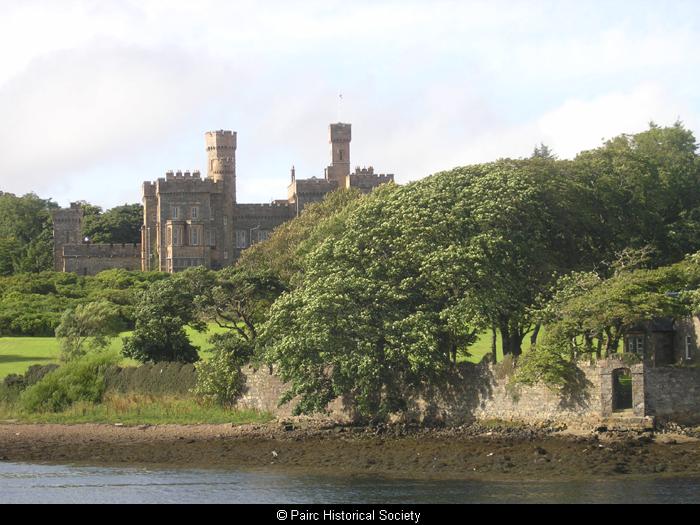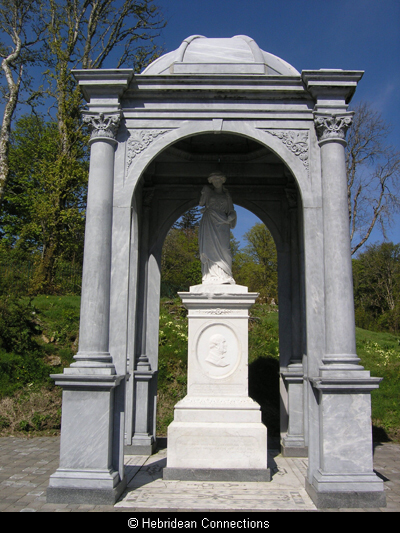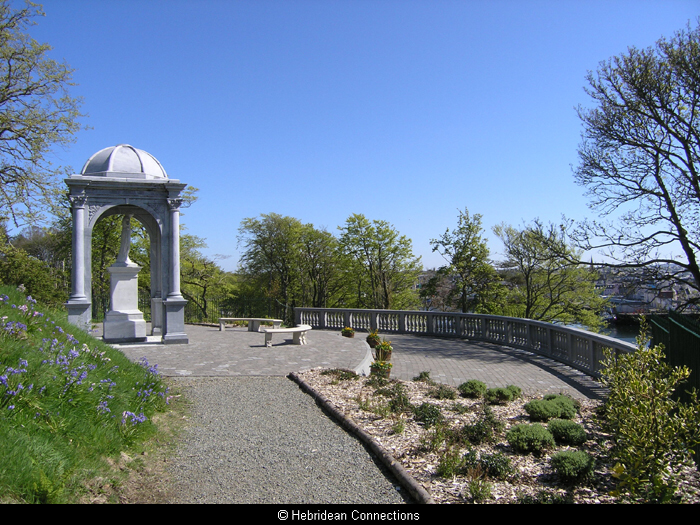45129: Sir James Matheson, Baronet
James Matheson (1796-1878) was the second son of Captain Donald Matheson and Catherine Mackay, both of Shinness, Lairg, Sutherland.
James studied in Inverness, the Royal High School in Edinburgh, and the University of Edinburgh. He then spent two years in London.
At 19 he set off for Kolkata to join Mackintosh & Co. He subsequently traded between India and China and established a residence at Macao. He became Danish consul there and was briefly in partnership with a Spanish merchant, trading in opium.
In the late 1820s Matheson joined with William Jardine, a surgeon’s mate from Edinburgh, in setting up Jardine Matheson Co. At the time China was effectively closed to foreign trade, though silk and tea were much in demand in the West, and only a few British traders were established in Canton.
Due to lack of Chinese interest in Western manufactured goods, the East India Company began importing opium from India into China. As the company’s monopoly slipped, Jardine Matheson Co. also entered into the opium trade and became, by the late 1830s, the largest opium dealer: feeding a habit that, according to some accounts, engaged up to 90% of the native population on the coast. Matheson maintained that he had “never seen a native in the least bestialised by opium smoking” and compared it instead to the use of “Champagne and costly wines” by the English upper classes; however, the effects on the addicted local population were obvious and devastating.
Opium was not, at the time, illegal in Great Britain, but had been banned in by the Imperial Court of China since 1729. In 1839 Chinese officials confiscated and destroyed nearly two million pounds worth of opium from the traders. They also took hostage and then expelled the traders from Canton, including Matheson.
Matheson moved to Hong Kong and continued in business. At the time Jardine was in Britain and he lobbied the foreign secretary Lord Palmerston to take action. Britain then went to war against China, in the first of the Opium Wars, and quickly defeating the Chinese secured the Treaty of Nanking. This gave Hong Kong into British possession and opened up trade in China. Jardine Matheson continued to trade in opium but the growing business expanded to include banking, shipping and insurance.
In 1842, suffering from asthma but now a very wealthy man, Matheson returned from the East and bought the estate at Achany near Lairg. His partner Jardine had held the position of Member of Parliament for Ashburton in Devon; his death resulted in a by-election which was won by James Matheson, representing the Whigs, on 8th March 1843. James was unopposed in the General Election of 1847, holding his seat until the following General Election of 1852 when he stood down.
On 9th September 1843 he married Mary Jane Perceval, of Spencerwood, Quebec.
In 1844 James bought the Isle of Lewis for £190,000, and this became his principal residence. Matheson commissioned the construction of Lews Castle on the site of Seaforth Lodge, opposite the town of Stornoway. The project took seven years and cost £60,000, with another £49,000 spent on developing the woodlands and gardens around the new castle. This required the clearance of tenants which was not well received by the populace, though Matheson did provide employment, famine relief and economic projects during his lifetime.
From 1845 to 1850 there was extensive famine on the island due to the failure of the potato crops and fishing industry. James avoided applying for assistance from the Highland Relief Board for the first three years by providing income to the people through road work, trenching, planting of bent, dyke building and quay building. He bought oatmeal which he sold to his tenants at 25% of the market price.
James brought in an expert in land reclaimation, Mr Dean, who advised him on his projects. 890 acres were reclaimed and bought under cultivation, but the Lochganvich experiment in an area of deep peat was not a success. However when crofting lands were surveyed and relotted between 1849 and 1851 less than half of the reclaimed acreage was added to crofters’ land; most was added to the farms.
In 1847 James was elected as the member for Ross and Cromarty, and he served until 1868.
He had an interest in education and maintained the Mackay’s School. In 1849 he and Lady Matheson opened The Female Industrial School in Stornoway.
By 1850 James had spent over £300,000 on improving infrastructure on Lewis.
He became a Baronet in 1851, in recognition of his efforts to help the people during the famine years. However,it was the herring industry that came to the rescue of the people; work became available in the Caithness fisheries for six weeks around July.
Latterly Sir James was also Lord Lieutenant for Ross-shire.
Between 1851 and 1855 he assisted 1771 people to emigrate; he offered his destitute tenants a paid passage to Canada, but this was also to his own benefit as the Poor Law Act required that he support them if they remained in Lewis.
In 1868 the Mackay’s School recieved a bequest from Alexander Morrison Nicolson and shortly after, Matheson put the school into public trust and renamed it the Nicolson Institute. Sir James provided a new site for the school at Sandwick Road in Stornoway and gave a nominal sum of £35 a year for the headmaster’s salary.
Sir James’ efforts to alleviate the poverty, famine and overcrowding that beset the islanders were not always welcomed or considered well-judged, and he is remembered with mixed feelings.
He died in Menton, France, and is commemorated in the Castle Grounds, Stornoway, by the Matheson Monument.
After Sir James’ death his estate passed to Lady Matheson, and then to his nephew Donald, who had resigned from the opium trade in concern at its effects, and great-nephew Colonel Duncan Matheson. The estate was sold in 1918 to Lord Leverhulme.
Chamberlains (factors) of the Lews under Sir James Matheson:
1844-1848: John Scobie, from Sutherland; he was generous to the crofters.
1848-1854: John Munro Mackenzie; he was strict about rent payments.
1854-1874: Donald Munro; ruled with an iron rod – the odium felt for Munro tarnished the reputation of the Mathesons themselves.
Details
- Record Type:
- Person
- Date Of Birth:
- 17 Nov 1796
- Date of Death:
- 31 Dec 1878
- Gender:
- Male
- Record Maintained by:
- HC


